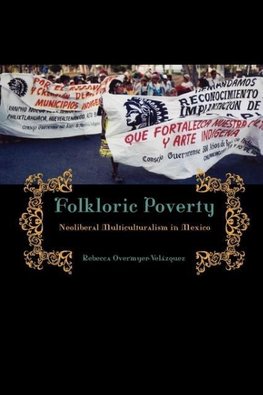
Folkloric Poverty
The "technocratic revolution" that ushered in the age of neoliberalism in Mexico under the presidency of Carlos Salinas (1988-1994) helped create the conditions for, and the constraints on, a resurgence of activism among the indigenous communities of Mexico.... Viac o knihe
Produkt je dočasne nedostupný
40.04 €
bežná cena: 45.50 €
O knihe
The "technocratic revolution" that ushered in the age of neoliberalism in Mexico under the presidency of Carlos Salinas (1988-1994) helped create the conditions for, and the constraints on, a resurgence of activism among the indigenous communities of Mexico. This resurgence was given further impetus by the protests in 1992 against the official celebration of the five hundredth anniversary of Columbus's landing in America and by the Zapatista uprising in Chiapas in 1994. Local, regional, and national indigenous organizations formed to pursue a variety of causes-cultural, economic, legal, political, and social-to benefit Indian peoples in all regions of the country.
Folkloric Poverty analyzes the crisis these indigenous political groups faced in Mexico at the turn of the twenty-first century. It tells the story of an indigenous peoples' movement in the state of Guerrero, the Consejo Guerrerense 500 Años de Resistencia Indígena, that gained unprecedented national and international prominence in the 1990s and yet was defunct by 2002. The fate of the Consejo points to the ways that Mexican multiculturalism, indigenismo, combined with neoliberal reforms to keep Indians in a political quarantine, effectively limiting their actions and safely isolating their demands on the state.
- Vydavateľstvo: Pennsylvania State University Press
- Formát: Paperback
- Jazyk:
- ISBN: 9780271036588


 Anglický jazyk
Anglický jazyk 


 Nemecký jazyk
Nemecký jazyk 






